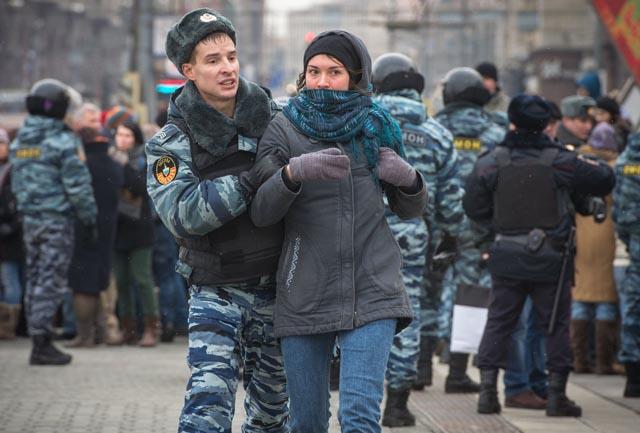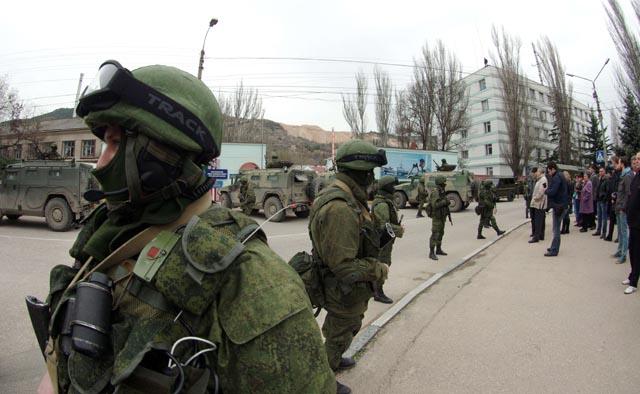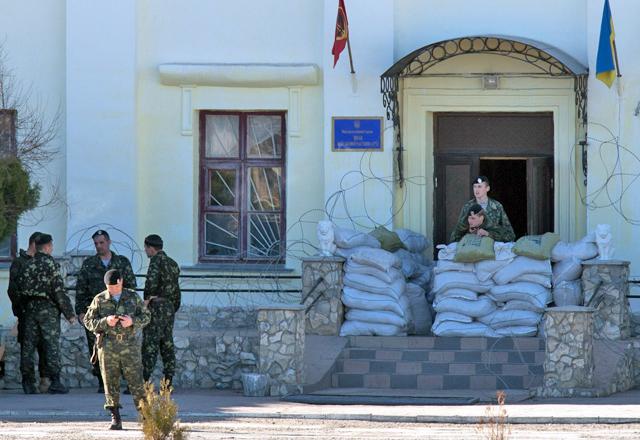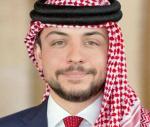You are here
Ukraine mobilises army as West warns Russia
By AFP - Mar 02,2014 - Last updated at Mar 02,2014

KIEV — Ukraine warned Sunday it was on the brink of disaster and called up military reservists after Russia’s threat to invade its Western-leaning neighbour risked sparking the worst crisis since the Cold War.
US President Barack Obama and his Western allies took turns admonishing Russia as Ukraine looked on the brink of losing control of Crimea with the defection of its navy commander to pro-Kremlin forces who have tightened their grip on the Black Sea peninsula.
World leaders huddled for urgent consultations across global capitals after Russia’s parliament voted Saturday to allow President Vladimir Putin to send troops into the ex-Soviet state — a decision Obama branded a “violation of Ukrainian sovereignty”.
US Secretary of State John Kerry upped the stakes for Putin by bluntly warning that Moscow risked relinquishing its coveted place among the Group of Eight (G-8) nations if its sabre rattling did not halt.
Ukraine’s new Western-backed Prime Minister Arseniy Yatsenyuk — in power for just a week following the overthrow of a pro-Russian regime — also warned that any invasion “would mean war and the end of all relations between the two countries”.
“We are on the brink of a disaster,” Yatsenyuk told the nation of 46 million in a televised address.
Pro-Moscow gunmen who are widely believed to be acting under Kremlin orders intensified their control Sunday over large swathes of a strategic peninsula that has housed Russian navies since the 18th century.
Witnesses said Russian soldiers had moved out of their bases and blocked about 400 Ukrainian marines in the eastern port city of Feodosiya. AFP reporters saw a similar presence of troops outside a Ukrainian military installation near the Crimean capital Simferopol and other locations.
But the biggest blow to the new Kiev leaders came when Ukrainian Navy Commander Denis Berezovsky announced a day after his appointment that he was switching allegiance to the pro-Russian authorities in Crimea after gunmen surrounded his building and cut off its electricity.
Crimea’s pro-Kremlin government chief Sergiy Aksyonov — installed in power Thursday after an armed raid on the region’s government building and not recognised by Kiev — immediately named Berezovsky as head of the peninsula’s own independent navy.
Full combat alert
Fears of Russia’s first invasion of a neighbour since a brief 2008 confrontation with Georgia prompted the largely untested interim team in Kiev to put its military on full combat alert and announce the call-up of all reservists.
The vast country on the eastern edge of Europe would face a David-and-Goliath struggle should the conflict escalate. Russia’s army of 845,000 soldiers could easily overwhelm Ukraine’s force of 130,000 — half of them conscripts.
Putin said it was his duty to protect ethnic Russians in Crimea and southeastern swathes of Ukraine that have ancient ties to Moscow and look on Kiev’s new pro-EU leaders with disdain.
Russian officials also argued they had no need to ask the UN Security Council for permission — as Putin had demanded for any Western action in Syria — because the well-being of their own citizens was at stake.
NATO chief Anders Fogh Rasmussen told Russia during urgent talks in Brussels that its movement of troops “threatens peace and security in Europe”.
German Frank-Walter Steinmeier spoke ominously of preventing “a new division of Europe” while France and Britain called for negotiations between Moscow and Kiev — either directly or through the United Nations.
The most immediate response to Russia’s actions came when Washington and its Western allies pulled out of this week’s preparatory meetings for the June G-8 summit in the Russian Black Sea resort of Sochi.
Kerry went one step further, warning Putin that “he is not going have a Sochi G-8, he may not even remain in the G-8 if this continues.”
Sochi hosted last month’s $51-billion Winter Olympic Games extravaganza that along with the football World Cup in 2018 are meant to highlight Russia’s return to prosperity and global influence under Putin’s rule.
Russia was admitted to the G-8 in 1998 in recognition of the late president Boris Yeltsin’s democratic reforms — a spot the Kremlin views as recognition of its post-Soviet might.
‘Candid’ Obama-Putin exchange
Events have moved rapidly since a three-month crisis in culturally splintered Ukraine — long fought over by Moscow and the West — sparked by pro-Kremlin president Viktor Yanukovych’s decision to spurn a historic pact with the European Union in favour of closer ties with Russia.
It culminated in a week of carnage last month that claimed nearly 100 lives and led to Yanukovych’s ouster.
The Kremlin appeared stunned by the loss of its ally and Kiev’s subsequent vow to seek EU membership — a decision that would shatter Putin’s dream of reassembling a powerful economic and military post-Soviet bloc.
The White House said Obama told Putin in a “candid and direct” exchange his actions in Crimea were a “breach of international law”.
The Kremlin’s account of Putin’s conversation with Obama was equally blunt.
It said Putin flatly told the US leader that Russia “reserves the right to protect its interests and those of the Russian-speaking population” if violence in Ukraine spread.
The Kremlin said Putin had also told German Chancellor Angela Merkel late Sunday that Russia’s response to the “relentless threat of acts of violence from ultranationalist forces... [was] fully adequate”.
Analysts called Ukraine the most serious crisis to test the West’s relations with Moscow since the 1991 breakup of the USSR.
“The damage to Russia’s relations with the West will be deep and lasting, far worse than after the Russian-Georgian war,” Eugene Rumer and Andrew Weiss of the Carnegie Endowment for International Peace wrote in a report.
“Think 1968, not 2008,” they said in reference to the Soviet Union’s decision to send tanks into Prague to suppress a pro-democracy uprising.
Pro-Kremlin sentiments in Crimea remained in evidence Sunday amid a sea of Russian flags.
“Crimea is Russia,” one elderly lady told AFP in front of a statue of Soviet founder Lenin that dominates a square next to the occupied parliament building in the regional capital Simferopol.
‘We will not surrender’
The mood in Kiev was radically different as about 50,000 people massed on Independence Square — the crucible of both the latest wave of demonstrations and the 2004 Orange Revolution that first nudged Kiev on a westward path — in protest at Putin’s latest threat.
“We will not surrender,” the huge crowd chanted under grey skies.
Ukraine’s prime minister had assured the nation Saturday he was “convinced” Russia would not launch an offensive because Moscow realised it would put an end to relations between two neighbours with centuries of shared history.
Kremlin spokesman Dmitry Peskov also said Saturday that “for the moment, this decision (to invade) has not been taken.”
Related Articles
Russian President Vladimir Putin won the green light from parliament Saturday to send troops into Ukraine after a bloody three-month uprising that swept new pro-EU leaders to power but sparked unrest in the pro-Kremlin Crimean peninsula.
Ukraine accused Russia on Monday of pouring more troops into Crimea as world leaders grappled with Europe’s worst standoff since the Cold War and the Moscow market plunged on fears of an all-out conflict.
Ukraine’s Western-backed leaders voiced fears on Sunday of an imminent Russian invasion of the eastern industrial heartland following the fall of their last airbase in Crimea to defiant Kremlin troops.


















